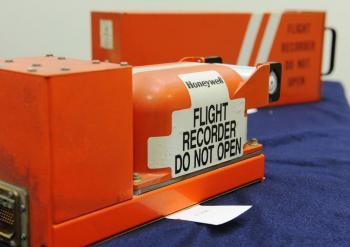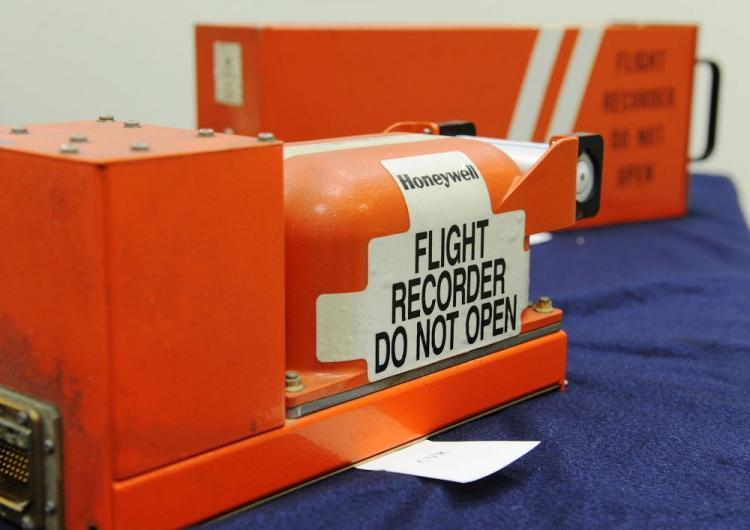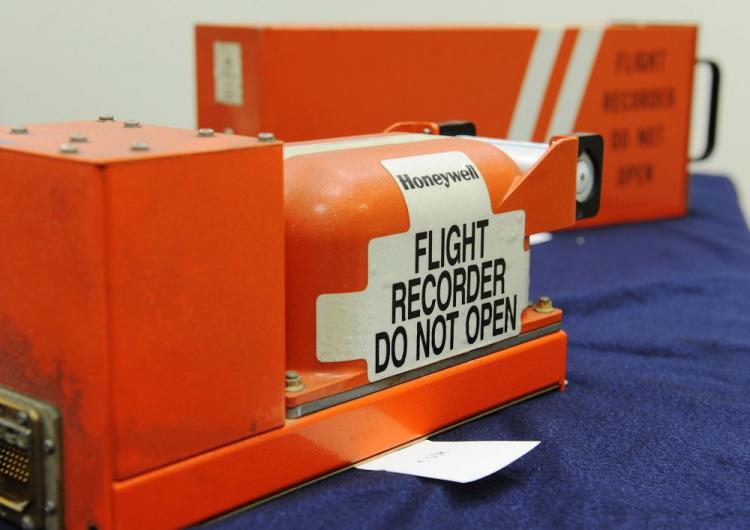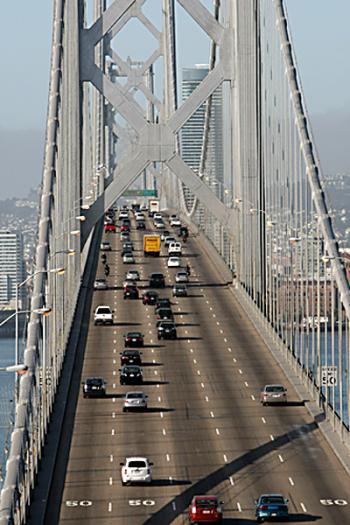U.S. aviation authorities revoked the licenses of the two Northwest Airlines pilots who missed their Minneapolis destination by 150 miles last week, causing concerns about the fate of the 144 passengers and five crew members aboard.
The Federal Aviation Administration (FAA) said on Tuesday that the pilots had violated numerous regulations, failed to take steps to get back on course and resume radio contact, crossed various air-traffic-zones, failed to comply with traffic control instructions, and were operating “carelessly and recklessly.”
The incident prompted transportation safety officials, among others, to investigate whether the two pilots fell asleep at the controls or were simply distracted.
After being interviewed for over a combined five hours on Monday, the pilots told investigators that they discussed work schedules and used laptop computers while cruising at 37,000 feet and did not pay attention to air control calls and dispatcher messages.
The pilots are Captain Timothy Cheney, 53, of Gig Harbor, Washington, and First Officer Richard Cole, 54, of Salem, Oregon.
The revocations are in effect immediately and the aviators have 10 days to appeal the action to the National Transportation Safety Board, said the FAA statement.
The pilots’ union had cautioned against a rush to judgment.
Neither pilot reported any ongoing medical conditions, and had never had an accident or violation.
Both pilots stated that they were not fatigued, that they were both commuters, but had a 19-hour layover in San Diego just prior to the flight. Both said they did not fall asleep nor dozed during the flight.
The pilots, however, said that there was a distraction in the cockpit. According to National Transportation Safety Board’s (NTSB) report, the two pilots said that there was a concentrated period of discussion where they did not monitor the airplane or notice messages sent by the company’s dispatchers.
The discussion, which began at cruise altitude, was about the new monthly crew flight scheduling system that was now in place as a result of the merger.
Delta Air Lines Inc., acquired Northwest airline last year.
At cruise altitude, the pilots told National Transportation Safety Board they were using cockpit speakers to listen to radio communications, not their headsets. When asked what the problem was, they replied “just cockpit distraction” and “dealing with company issues,” the report says.
Both pilots said there are no procedures for the flight attendants to check on the pilots during flight.
Last week, the two pilots on the Airbus A320 briefly lost radio contact with air traffic controllers before turning the plane around and landing.
Controllers at the Minnesota airport concerned about the fate of the people aboard asked the pilots of other aircrafts to rouse the Northwest crew, according to transportation safety officials. Military officials, who were also notified of the situation, considered sending fighter jets to intercept Airbus A320.
The incident came as the Federal Aviation Administration (FAA) was reviewing its decades-old rules on how long commercial pilots can fly and remain on duty.
The Federal Aviation Administration (FAA) said on Tuesday that the pilots had violated numerous regulations, failed to take steps to get back on course and resume radio contact, crossed various air-traffic-zones, failed to comply with traffic control instructions, and were operating “carelessly and recklessly.”
The incident prompted transportation safety officials, among others, to investigate whether the two pilots fell asleep at the controls or were simply distracted.
After being interviewed for over a combined five hours on Monday, the pilots told investigators that they discussed work schedules and used laptop computers while cruising at 37,000 feet and did not pay attention to air control calls and dispatcher messages.
The pilots are Captain Timothy Cheney, 53, of Gig Harbor, Washington, and First Officer Richard Cole, 54, of Salem, Oregon.
The revocations are in effect immediately and the aviators have 10 days to appeal the action to the National Transportation Safety Board, said the FAA statement.
The pilots’ union had cautioned against a rush to judgment.
Neither pilot reported any ongoing medical conditions, and had never had an accident or violation.
Both pilots stated that they were not fatigued, that they were both commuters, but had a 19-hour layover in San Diego just prior to the flight. Both said they did not fall asleep nor dozed during the flight.
The pilots, however, said that there was a distraction in the cockpit. According to National Transportation Safety Board’s (NTSB) report, the two pilots said that there was a concentrated period of discussion where they did not monitor the airplane or notice messages sent by the company’s dispatchers.
The discussion, which began at cruise altitude, was about the new monthly crew flight scheduling system that was now in place as a result of the merger.
Delta Air Lines Inc., acquired Northwest airline last year.
At cruise altitude, the pilots told National Transportation Safety Board they were using cockpit speakers to listen to radio communications, not their headsets. When asked what the problem was, they replied “just cockpit distraction” and “dealing with company issues,” the report says.
Both pilots said there are no procedures for the flight attendants to check on the pilots during flight.
Last week, the two pilots on the Airbus A320 briefly lost radio contact with air traffic controllers before turning the plane around and landing.
Controllers at the Minnesota airport concerned about the fate of the people aboard asked the pilots of other aircrafts to rouse the Northwest crew, according to transportation safety officials. Military officials, who were also notified of the situation, considered sending fighter jets to intercept Airbus A320.
The incident came as the Federal Aviation Administration (FAA) was reviewing its decades-old rules on how long commercial pilots can fly and remain on duty.






